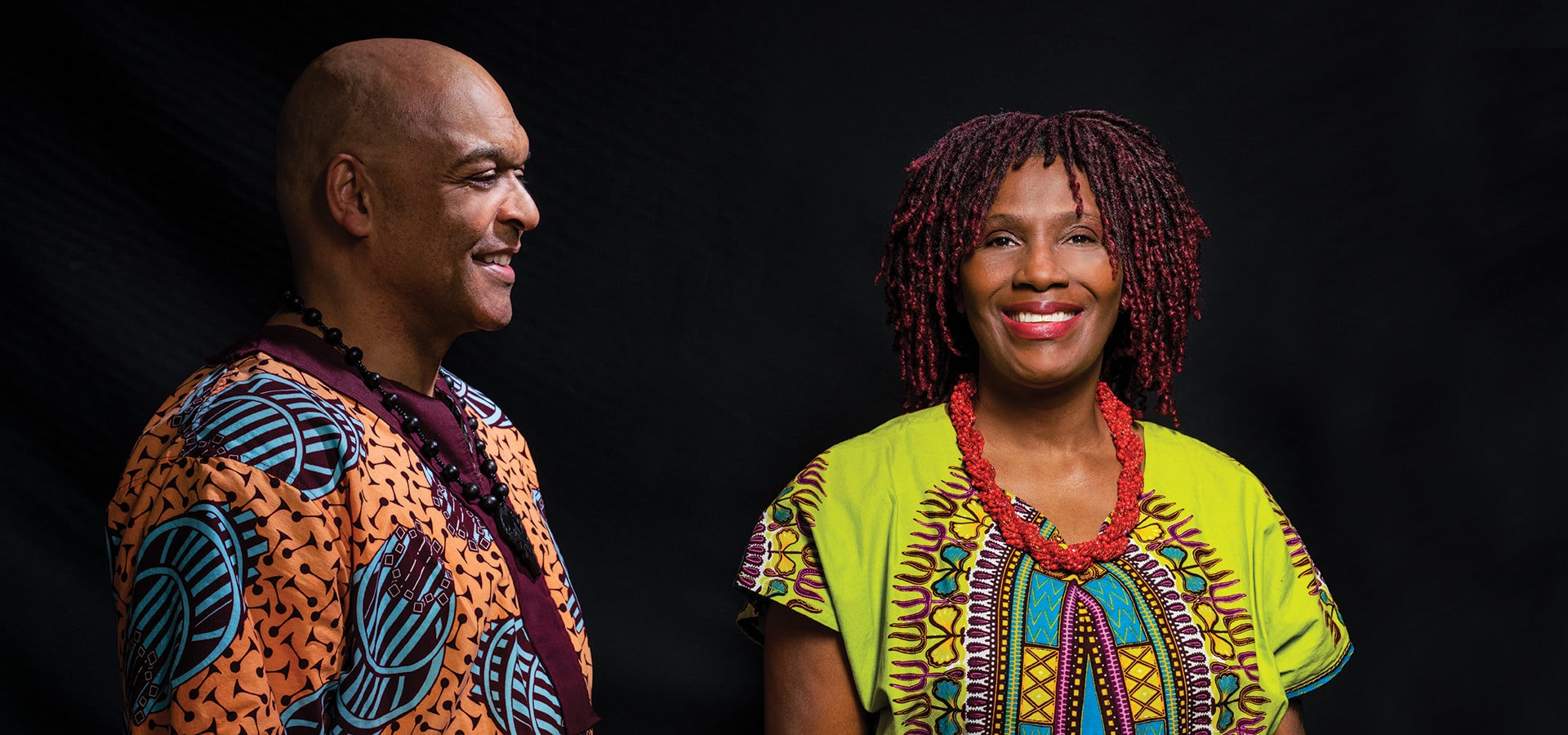Through Art and Activism, a SoCal Couple Coalesces Their Passions for the Greater Good
Love & leadership.
-
CategoryArts + Culture, Giving Back, Makers + Entrepreneurs, Visual Art
-
Written byTanya Monaghan
-
Photographed byShane O’Donnell
“Peace through empowerment and transformation.” This is the mission statement of Amahoro International, a nonprofit organization founded by South Bay residents George and Mukarabe Makinto. Amahoro is the Kirundi expression for peace, which conveys blessings, well-being and fullness of life. If you get the chance to meet the Makintos in person, you will feel all of this in their energy and see it in their eyes and bright, wide smiles.
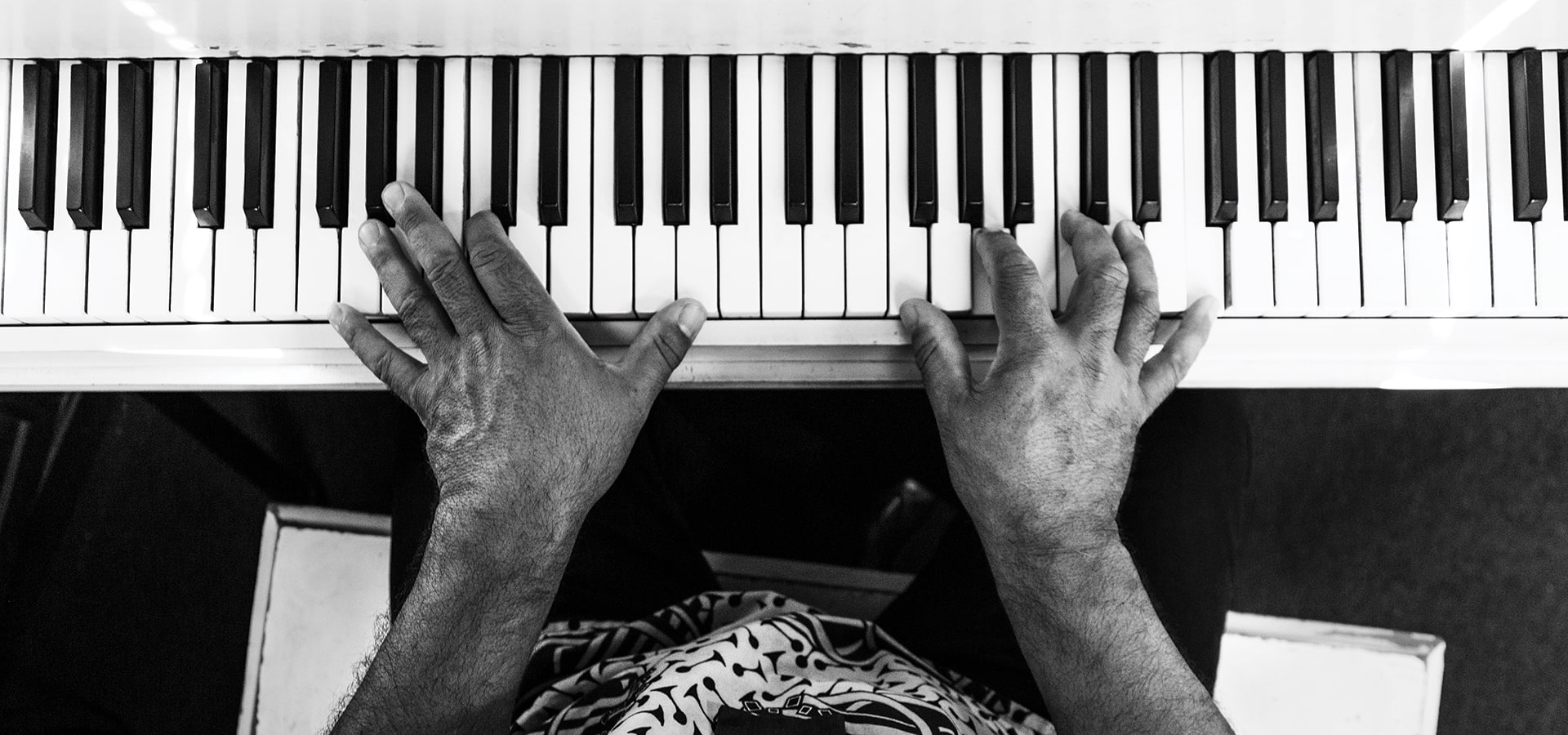
Originally founded in 2000 in New York City, the organization advocates for AIDS orphans in Burundi, a small country in East Africa. In the past two decades, it has given hope and restored dignity to Burundian refugees and equipped them to participate in the transformation of African communities. All the incredible work George and Mukarabe do is deeply rooted in their personal histories. Theirs is a story of two beautiful souls—living on different continents—who found each other and created something bigger.
Mukarabe was born in Burundi, the youngest of seven children. Her father, a visionary who championed the education of girls, died when Mukarabe was very young. His legacy, however, lives on in his daughter, who went to school and earned a college degree in the English language.
Her future seemed bright until a genocide began in 1993. Fleeing to Kenya, she refused to go to a refugee camp in fear of becoming a statistic. Instead, she used her degree and language skills to work and earn a living. A job at the United Nations offered her a way out.
George was born in Germany to a Liberian mother and a German father. His mother left the family when he was only 6 months old, and George was raised in a purely German household. Growing up as the only black person in his town, he experienced many forms of racism but considered himself a rebel. He studied classical music, venturing into jazz and playing in bands during high school. But he found a cultural disconnect being a biracial person living in a monoethnic place.
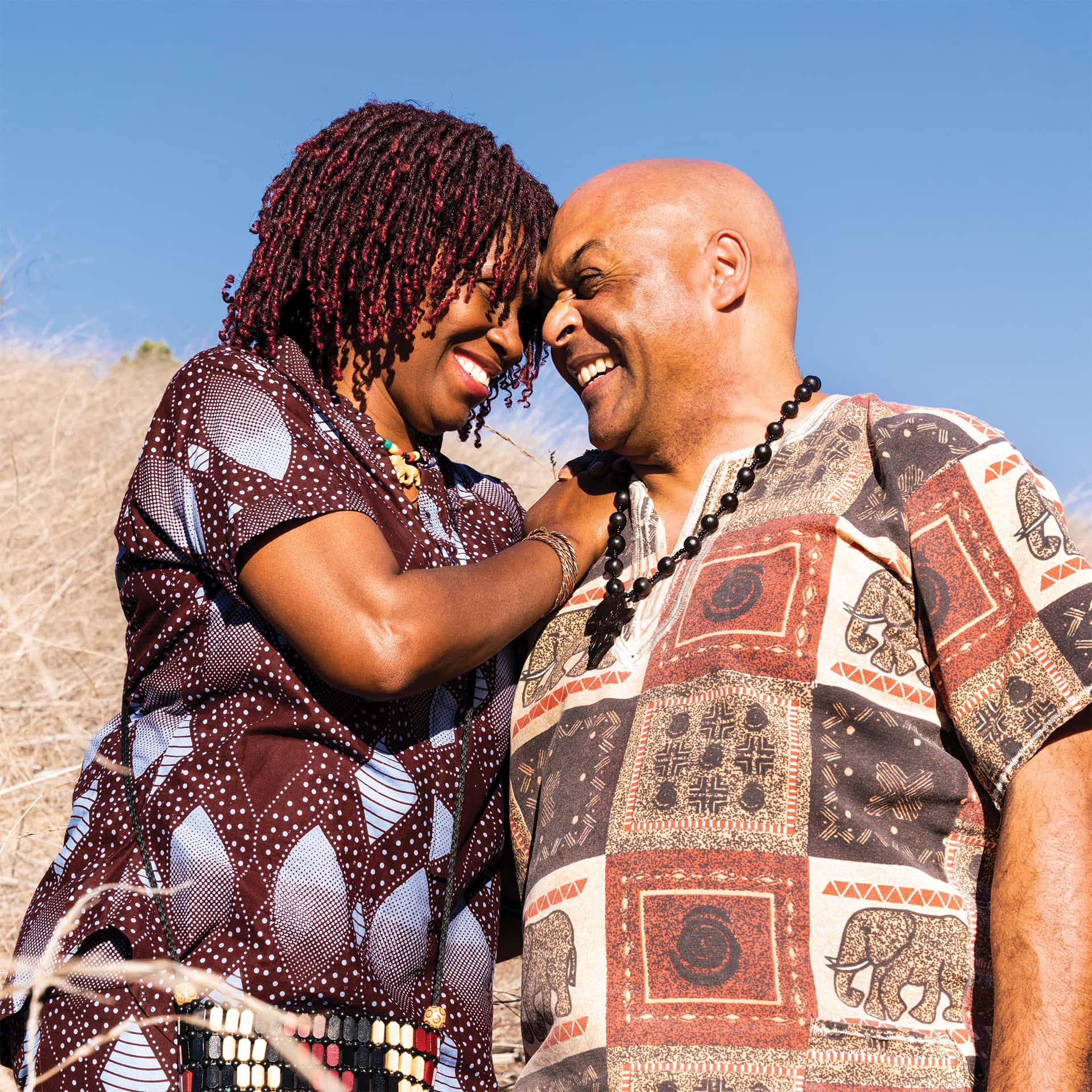
George’s struggle with his cultural identity as a young adult led him to Africa to explore his heritage. He first went to Liberia and the Ivory Coast and found most of his African inspirations through music. While living in the Ivory Coast, George formed a band that rose to the forefront of the world music movement. He then moved with his band to Paris for a 10-year stint.
In Paris he was introduced to the African American jazz scene and, through a connection, jumped on a state department tour with jazz saxophonist and flutist T.K. Blue. The first stop: East Africa. George nostalgically remembers one post-concert night after performing in Burundi. “We went out with some friends. Amongst them was a young woman who danced very well. We danced the night away.”
Several years later he began to tour with a South African star named Miriam Makeba. By this time George had traveled the world, been married and divorced, released a few albums and become an acclaimed international artist. He joined Makeba’s band as her piano player and flutist. One of his fondest memories was playing for Nelson Mandela, who was so happy to see their act he climbed onto the stage to dance with them.
In 1997, on a Canadian-American tour with Makeba, the band played in Portland, Oregon. While playing, he noticed a beautiful woman dancing. She eventually came to the stage to meet the band members. As fate would have it, the beautiful dancer was the same young woman he met dancing at the club in Burundi nine years before: It was Mukarabe.
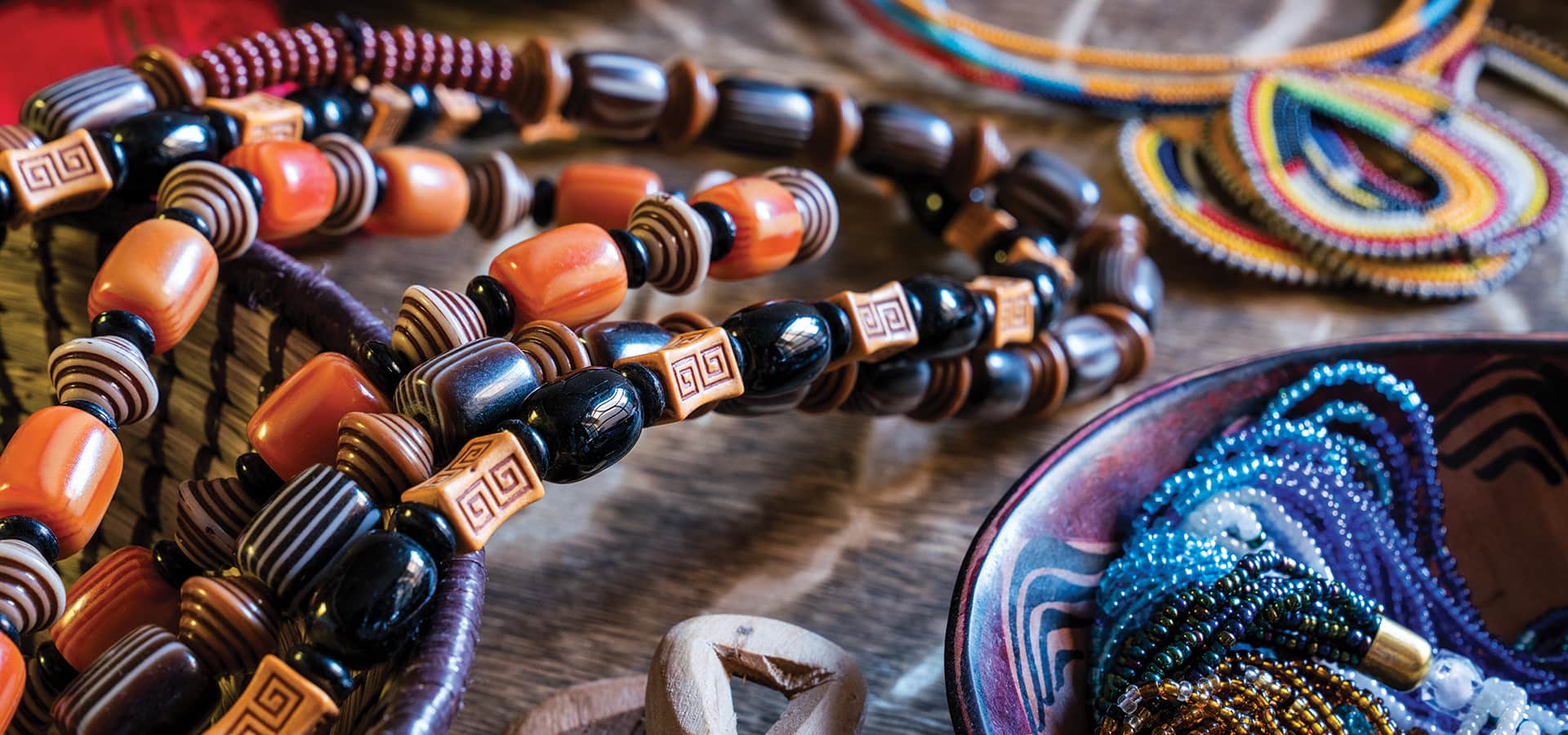
They fell in love quickly, managing a long-distance relationship between Portland and Paris until Mukarabe made the move to Europe so they could be together. The young couple moved to New York City with their firstborn son so Mukarabe could reconnect with the United Nations and George could join the New York jazz and music scene.
“What we are doing is a testament to the fact that there are people out there who have a good heart and want to give.”
Mukarabe became deeply devoted to eradicating poverty, helping draft the African Caucus Resolution to End Poverty for the U.N. George became a goodwill ambassador for peace and justice through his work with Miriam Makeba.
Both George and Mukarabe share a deep compassion for the needy, especially in Africa. At various institutions in New York, the two taught about African culture and the issues the continent was facing—from AIDS to poverty. Although Mukarabe was working for the U.N., she wanted to do more at a grassroots level and help people directly. For her it wasn’t about numbers; it was very personal. It was about hearing someone’s story and catering to their individual needs.
At this time, AIDS was killing Africans at a startling rate, with many thousands of orphans left to fend for themselves. Tragically, AIDS devastated Mukarabe’s own family when three of her sisters and their husbands died from the disease—leaving her nieces and nephews without parents.
When founding Amahoro International, the first project was to help Mukarabe’s family. They sought a way to allow sibling orphans to stay together rather than get dispersed and separated into other families. In 2006 they established Rugaba’s Children Group Home to house Mukarabe’s orphaned nieces and nephews, among others. Rugaba’s Children became a successful incubator for other orphan ministries, including the Association of Young Orphans Against Poverty and HIV/AIDS in Burundi.
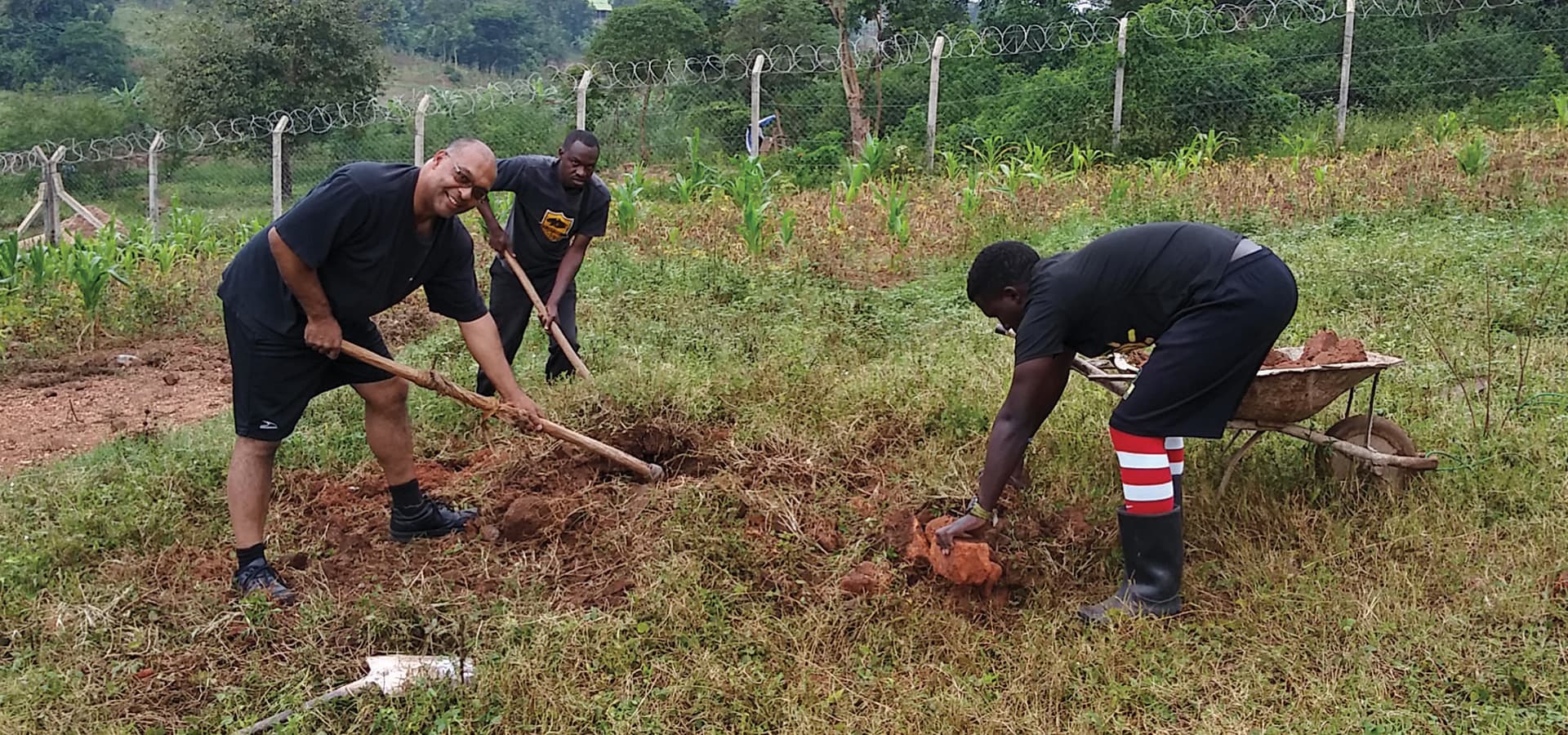
All of Amahoro’s work has been funded on a donor basis through their connections. For example, women here in the South Bay handle the financials. They were very lucky to have Cindy Akiyama, whom Mukarabe met in a women’s prayer group, as a passionate supporter and board member. Cindy even took her two daughters all the way to Uganda to see the camps. Cindy and all the other donors have been integral to the cause.
Amahoro International focuses on the common needs of those they are helping. When the orphans they once assisted grew up and became refugees, the Makintos reached out to a pastor they had previously worked with and asked if the 13 refugees could live with him in Uganda. He generously housed them before helping the Makintos find land to build a new home.
All of the funds for this project came from their connections in the South Bay. Makinto began performing with his band at fundraisers in private homes to raise enough money. In 2016 the Makinto family, along with many who helped fundraise in the South Bay, traveled to Uganda to inaugurate the Joyful House of Refuge. They held a huge celebration and invited the community to eat, sing and dance.
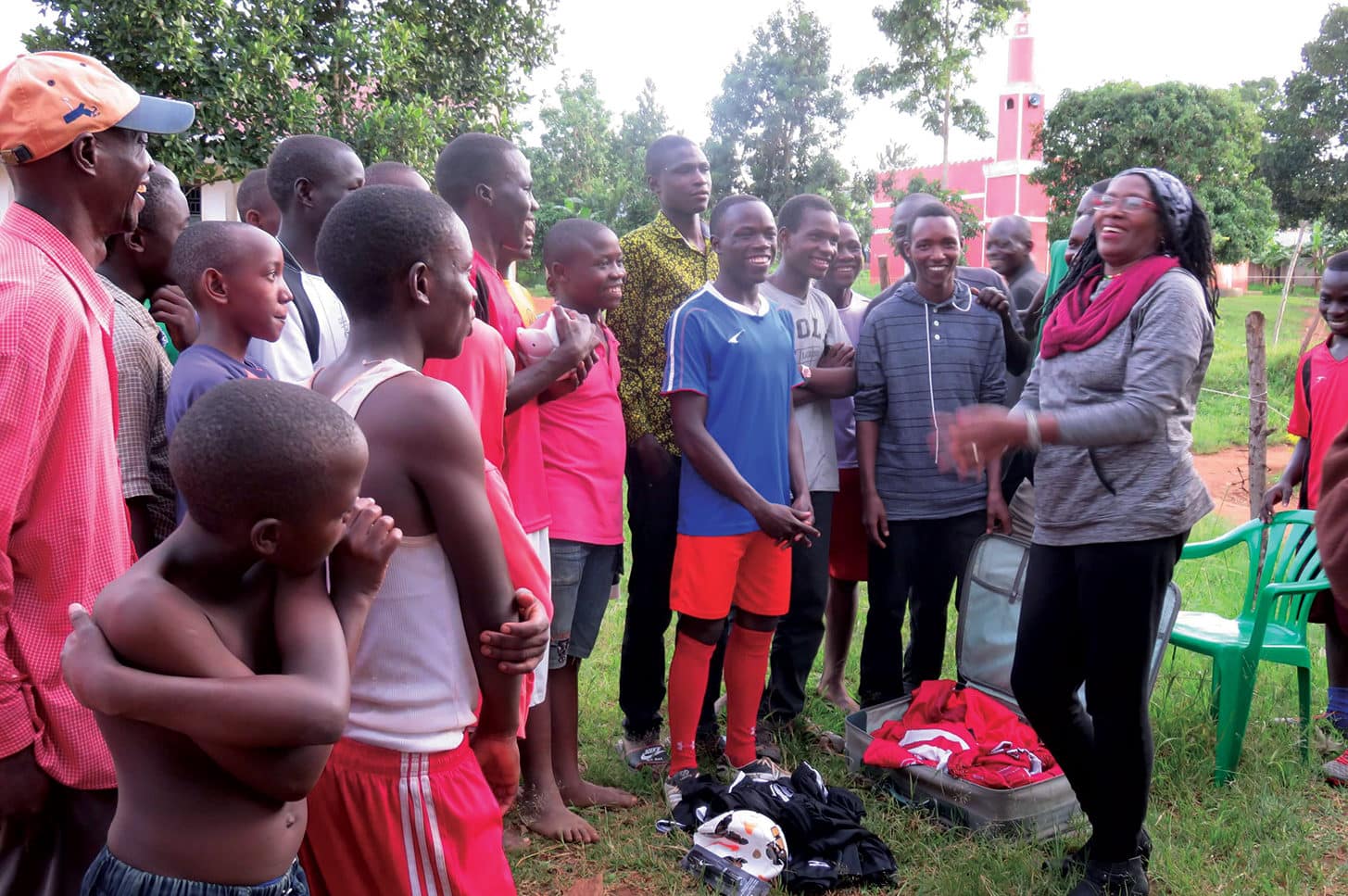
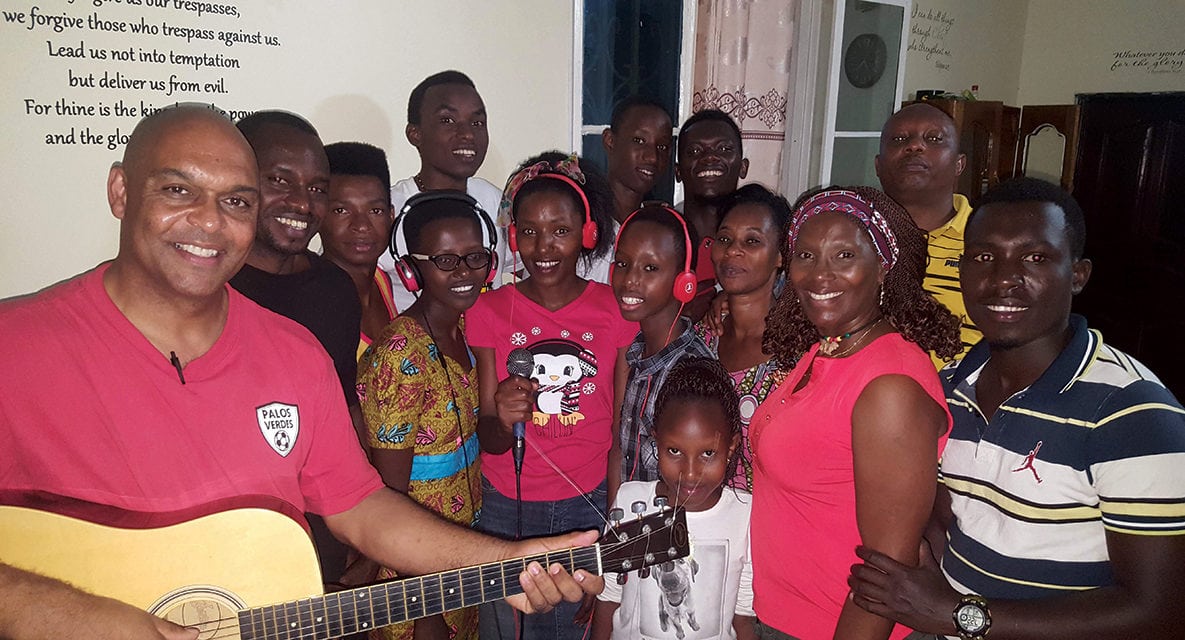
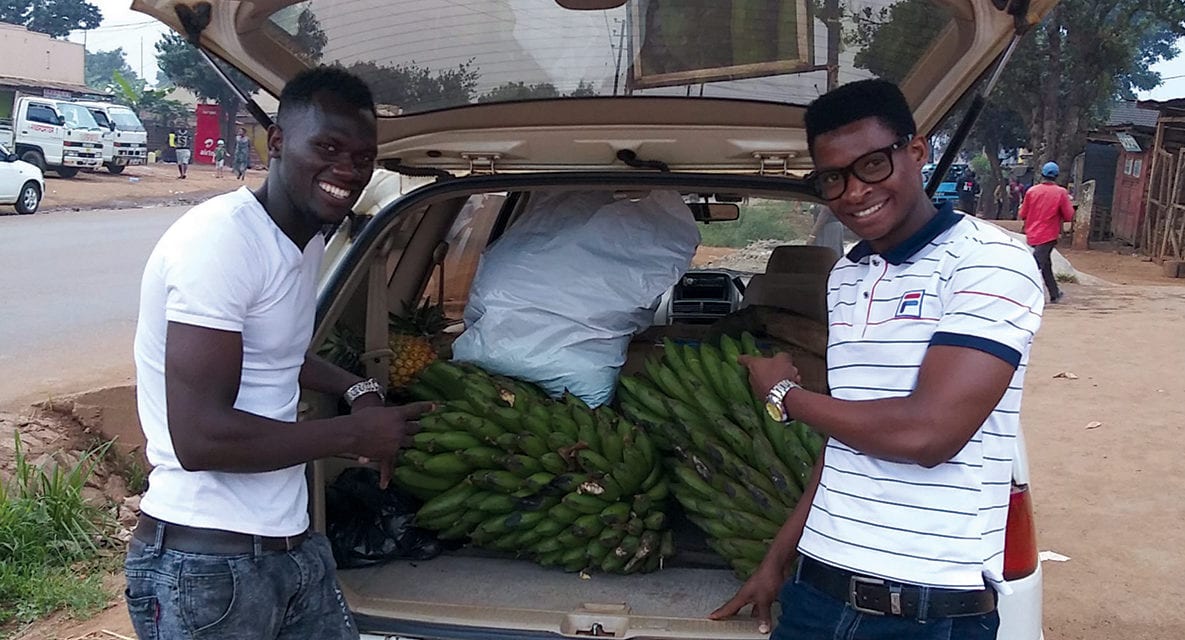
But the Makintos had to face the reality of how to help these refugees going forward. The answer came in empowerment through leadership training. “The initiatives had to come from within Africa for Africa to sustain itself,” shares George. “It starts with nutrition and food, but that is just the beginning. We are an African initiative by Africans for Africans. The South Bay donors recognize this and know that all the money they are giving goes straight to the people we are helping. It is very personal.”
The organization looks to expand the Joyful House of Refuge by buying more land so they can bring in more refugees. Volunteers teach the residents English, computer technology and programming, and even barber skills.
The Makintos’ long-term goal for Amahoro International is to become a global platform for durable and deep-reaching transformation in Africa through advocacy and sustainable development. George attributes most of the work to his beloved wife.
“She is amazing. She is the perfect community organizer. The way that she can motivate people to give their best is a gift. Being an African and being able to speak to the East Africans is really very remarkable. When she moves—even in Uganda, which is not her country—she is able to rally people.”
In one of her missions there, she met the brother of the king of Buganda—one of the Ugandan kingdoms—who also happens to be the head of the Uganda land board. He witnessed her light firsthand and the power of Amahoro’s work in Uganda. He gave the Makintos title of the land on which Joyful House of Refuge was built, as well as the prospect of 50 acres of land in a very fertile part of Uganda.
The home currently houses 15 refugees, including three college students who are graduating this year. The Makintos want the home to be a safe place where the refugees can learn and grow and then move on to become independent men and women. This model also allows for the cycle to continue to bring in new refugees in need of help.
“What we are doing is a testament to the fact that there are people out there who have a good heart and want to give,” says George. “All of the work we have done has been funded solely through connections and friends we know in the South Bay. We are eternally grateful.”
Where the California Wild Things Are in Fall
Ink Dwell’s Jane Kim illustrates NorCal autumn splendor.
Costumer Ruth Carter’s Heroes Do Battle in Style
The Black Panther designer shares her inspirations for the hit fit.
Get the Latest Stories




